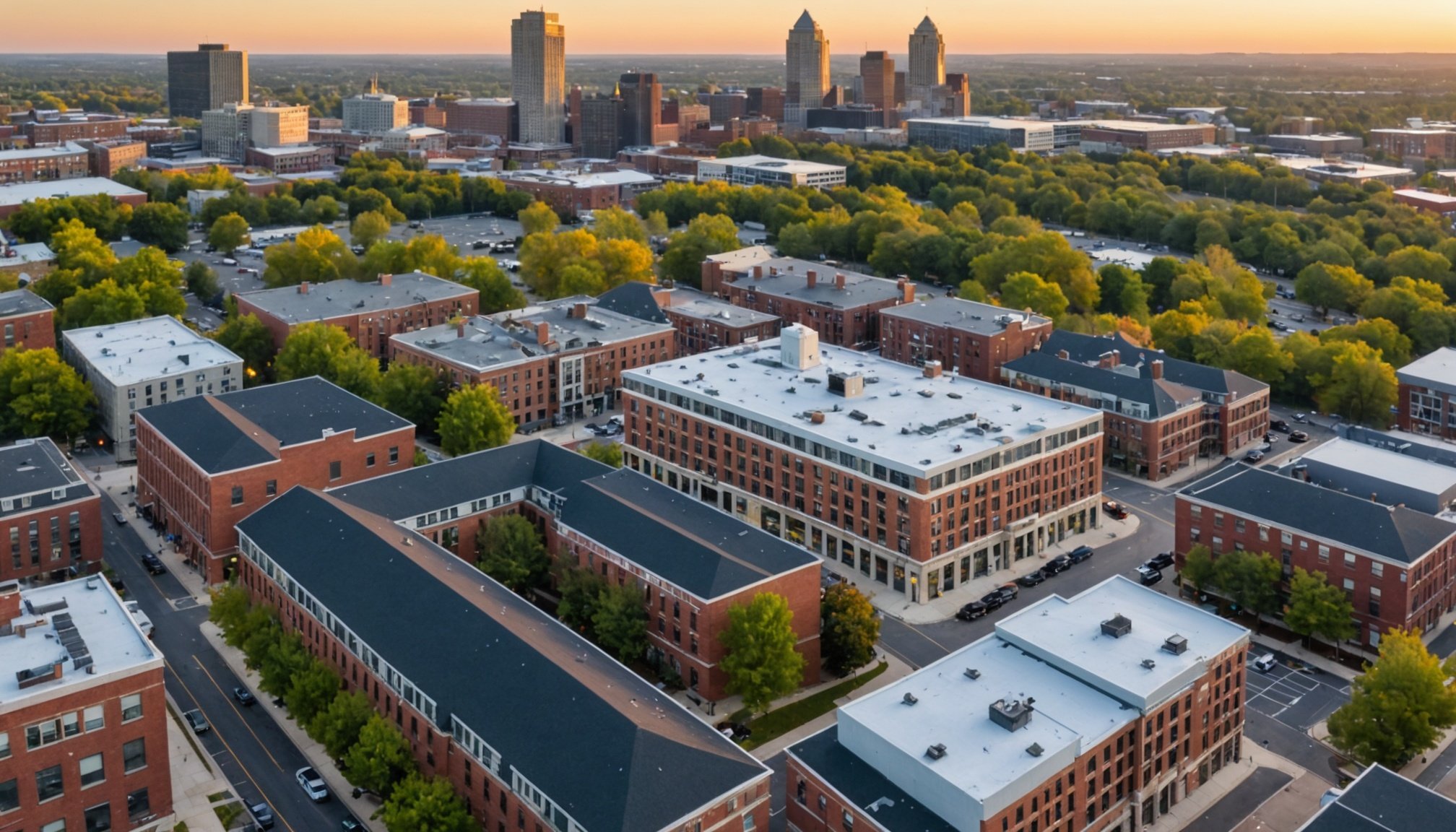Leveraging Community Insights: A Guide to Elevating Real Estate Projects in Manchester
Understanding the Importance of Community Insights
When it comes to real estate development, particularly in a vibrant city like Manchester, understanding and leveraging community insights is crucial for success. This approach not only ensures that projects are tailored to the needs and aspirations of the local community but also fosters a sense of ownership and cooperation. Here’s why community insights are so vital:
Engaging with the Community
Community engagement is more than just a box to tick; it is a fundamental aspect of successful real estate development. In Manchester, recent initiatives have highlighted the importance of involving the community in urban regeneration projects. For instance, the YIMBY (Yes In My Backyard) phenomenon, which encourages community support for new development, has been instrumental in shaping the city’s housing and real estate landscape.
Also to see : Unlocking the Lasting Advantages of Choosing Premium Building Materials for Your Projects
Holistic Solutions
The Radix Big Tent Housing Commission, which recently published its final recommendations, emphasizes the need for holistic solutions that address the housing system as a whole. This includes streamlining funding processes, encouraging institutional investment, and reforming developer contributions to deliver more affordable housing. Such comprehensive approaches are only possible when developers and policymakers listen to and incorporate community insights.
Key Strategies for Leveraging Community Insights
To elevate real estate projects in Manchester, several key strategies can be employed:
In parallel : Unlocking the Dual Advantages of Green Roofs: Financial Savings and Environmental Gains for Urban Spaces
Community Engagement and Feedback
- Public Consultations: Holding regular public consultations and town hall meetings allows developers to gather feedback directly from the community. This helps in understanding the specific needs and concerns of local residents.
- Surveys and Focus Groups: Conducting surveys and focus groups can provide valuable data on what the community wants and expects from new developments.
- Collaboration with Local Authorities: Working closely with local authorities and housing associations ensures that projects align with the broader social and housing goals of the city.
Incorporating Local Knowledge
- Local Partnerships: Partnering with local businesses, universities, and community groups can provide developers with unique insights into the local market and community needs.
- Historical Context: Understanding the historical and cultural context of the area can help developers design projects that respect and enhance the existing character of the neighborhood.
Addressing Social and Health Needs
- Affordable Housing: Ensuring that a significant portion of new developments includes affordable housing options addresses a critical social need and helps in creating more balanced and inclusive communities.
- Health and Wellbeing: Incorporating green spaces, community facilities, and health services into development plans can significantly improve the health and wellbeing of residents.
Case Study: Greater Manchester’s Innovation Ecosystem
Greater Manchester is a prime example of how leveraging community insights can drive growth and innovation in the real estate sector.
Innovation Districts
Manchester’s innovation districts, such as the Corridor Manchester initiative, have been instrumental in driving growth. These districts combine world-renowned universities, industry-leading R&D clusters, and thriving tech and life sciences sectors to create a hub for innovation. This ecosystem attracts both domestic and international businesses, making Manchester a magnet for investors in commercial real estate and office space.
Urban Regeneration
Urban regeneration projects in Manchester, such as those in the city centre and surrounding areas, have been successful due to strong community engagement. For example, the redevelopment of old industrial sites into mixed-use projects has not only revitalized neglected areas but also provided new homes, jobs, and community facilities.
Practical Insights and Actionable Advice
Here are some practical insights and actionable advice for developers looking to leverage community insights in Manchester:
Building Strong Relationships
- Trust and Transparency: Building trust with the community is key. This involves being transparent about development plans and involving the community in decision-making processes.
- Long-Term Commitment: Demonstrating a long-term commitment to the community can help build trust and ensure that projects are seen as beneficial rather than intrusive.
Using Data and Research
- Market Research: Conducting thorough market research can help developers understand current trends and future demands in the property market.
- Community Data: Using data collected from community surveys and feedback sessions can help in designing projects that meet specific community needs.
Collaborating with Local Experts
- University Partnerships: Collaborating with local universities, such as the University of Manchester, can provide access to cutting-edge research and expertise.
- Local Authorities: Working closely with local authorities and housing associations can ensure that projects are aligned with the city’s overall development strategy.
Table: Comparing Community-Centric Approaches in Real Estate Development
| Approach | Benefits | Challenges | Examples in Manchester |
|---|---|---|---|
| Public Consultations | Direct feedback from the community, increased transparency | Time-consuming, potential for conflict | Regular town hall meetings in Manchester city centre |
| Local Partnerships | Access to local knowledge, stronger community ties | Coordination challenges, potential for conflicting interests | Partnerships with local businesses and community groups in innovation districts |
| Affordable Housing | Addresses social need, creates inclusive communities | Funding challenges, regulatory hurdles | Affordable housing initiatives by housing associations in Greater Manchester |
| Innovation Ecosystems | Attracts businesses, drives economic growth | Requires significant investment, coordination among multiple stakeholders | Corridor Manchester initiative combining universities and R&D clusters |
| Urban Regeneration | Revitalizes neglected areas, provides new amenities | Complex planning processes, potential for community resistance | Redevelopment of old industrial sites in Manchester city centre |
Quotes from Key Stakeholders
Alex Notay, Chair of the Radix Big Tent Housing Commission
“The goal of this commission was to identify and propose actionable, pragmatic solutions to address England’s housing crisis. We engaged experts from across the real estate industry, who shared their insights on operating in the current market and explored how a combination of major reforms and incremental changes could help foster a better environment to ensure delivery on the ground – addressing the planning system, unlocking investment, creating jobs and opportunities, and delivering a diverse mix of new homes.”
Joe Manning, Managing Director of MIDAS
“Greater Manchester’s ability to leverage its R&D and tech sectors is making the city a magnet for investors, particularly in commercial real estate and office space. Our innovation districts and urban regeneration projects are driving strong demand in the property market and positioning Manchester as a global hub for science, innovation, and sustainable growth.”
Leveraging community insights is a critical component of successful real estate development in Manchester. By engaging with the community, incorporating local knowledge, and addressing social and health needs, developers can create projects that are not only profitable but also beneficial to the community. As Manchester continues to grow and innovate, the importance of community-centric approaches will only become more evident.
Key Takeaways
- Community Engagement: Regular public consultations and partnerships with local groups are essential.
- Holistic Solutions: Addressing the housing system as a whole, including affordable housing and social needs.
- Innovation Ecosystems: Leveraging Manchester’s R&D and tech sectors to drive growth.
- Urban Regeneration: Revitalizing neglected areas through mixed-use projects.
- Long-Term Commitment: Building trust and demonstrating a long-term commitment to the community.
By following these strategies and insights, developers can ensure that their real estate projects in Manchester are not just successful but also contribute positively to the community, fostering a brighter future for all.











